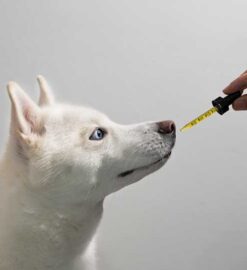Travel or Sick Leave Medical Certificate: What to Put (And Doctors’ Expectations)

If you’re seeking a sick leave from work or applying for travel where health clearance is needed, it’s necessary to have the correct Medical Certificate in place. Yet, not every certificate is alike — and both institutions and doctors adhere to some particular standards in accepting or providing them.
Understanding what a valid certificate entails can prevent delays, rejection, or miscommunication, particularly when it is connected to company policies, school demands, or even border control when traveling.
What Physicians Consider Before Issuing a Certificate
A certificate is not merely a procedure — it’s a legal document. That is why licensed physicians have a procedure before issuing one. When you ask for a certificate, be prepared for the physician to consider the following:
- Your symptoms and history: You’ll be asked about your condition, how long it has lasted, and how it’s affecting your ability to function.
- Objective findings (if any): For in-person visits, doctors may take vital signs or perform tests. In online consultations, they may rely on visible signs and your account of symptoms.
- Medical appropriateness of rest or travel: A physician must determine whether time off work is medically warranted or whether you are healthy enough to travel safely without endangering your own or others’ health.
If any red flags surface — e.g., discrepancy between symptoms and professed inability — the physician may not grant the certificate immediately.
What a Proper Medical Certificate Should Contain
Whether you want it for HR, school, or travel authorities, your certificate should be clear and comprehensive. At the very least, it must have:
- Patient’s full name
- Date of consultation
- Diagnosis or medical cause for absence/travel clearance
- Length of recommended rest or fitness to travel
- Full name of attending physician, signature, license number, and clinic or facility details
For travel, it can also contain a statement that the patient is not displaying contagious symptoms (e.g., fever, cough, etc.) depending on what the destination requests.
The Significance of Medical Certificate Registration
Some employers and institutions now check where a certificate has come from by using Medical Certificate Registration systems. It guarantees the paper is from an authenticated health practitioner and stops misuse or forgery.
Utilizing channels such as NowServing PH ensures your certificate is not just authentic, but traceable and easy to verify for third parties.
Evading Common Pitfalls
One of the most common causes for certificate rejection is omitted information — the license number of the doctor, clinic location, or an adequate rest period recommendation. Avoid issues by:
- Getting consultations from a licensed medical practitioner.
- Being truthful with your symptoms and travel itinerary.
- Utilize a reliable health platform that guarantees correct documentation.
Ultimately, a properly prepared certificate is not just a piece of paper — it’s your pass to recovery, travel, or just getting the time you need to heal.



